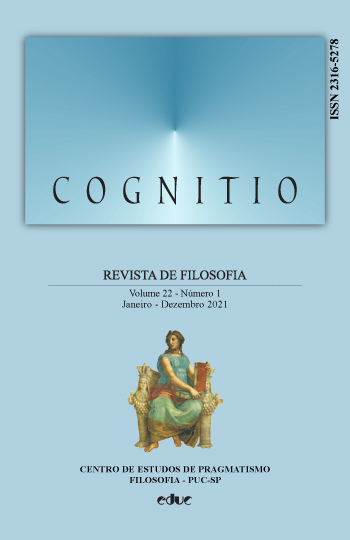Wittgenstein, Kripke e as armadilhas do dualismo
DOI:
https://doi.org/10.23925/2316-5278.2021v22i1:e56353Resumo
O artigo examina o paradoxo cético no chamado “Kripkenstein” à luz da psicologia ecológica, uma teoria cognitiva que tem como base tomar como unidade de análise os organismos juntamente com seus ambientes. O conceito de affordance, também basilar para a psicologia ecológica, oferece uma versatilidade importante para explicações sobre nossa percepção do mundo, e principalmente (para os propósitos deste artigo) para a percepção dos aspectos menos tangíveis (não-fisicos) da realidade, as chamadas “práticas sociomateriais”. Tal abordagem da cognição se mostra valiosa na superação desse paradoxo ao permitir que a mesma seja compreendida como fenômeno coletivo, a linguagem e demais práticas que “seguem regras” estando inseridas nesse contexto como práticas construídas coletivamente que moldam a realidade humana.
Publicado
Versões
- 2021-12-31 (2)
- 2021-12-31 (1)
Como Citar
Edição
Seção
Licença
Copyright (c) 2021 http://creativecommons.org/licenses/by/4.0/

Este trabalho está licenciado sob uma licença Creative Commons Attribution 4.0 International License.









